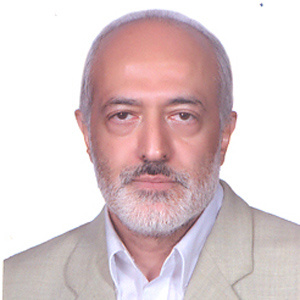The Glitch in the U.S. Nuclear Security Summit
Did the U.S. Forget to Invite Iran? By Farhad Shahabi.

On April 12 and 13, Washington hosted the Nuclear Security Summit attended by the leaders of 47 (potentially) nuclear states. At the top of the summit’s agenda was reinforcing nuclear security and minimizing the threat of nuclear terrorism through international cooperation. In the final declaration, the attendees supported President Obama’s appeal for a four-year effort to secure vulnerable nuclear material. In a straightforward manner, the declaration lays down Obama’s gravest concern—frequently addressed by the U.S. president, especially in the recently released document, the “Nuclear Posture Review” (NPR).
A summit attended by senior officials of forty-seven countries could be no more expressive in reflecting global unanimity on the importance of nuclear security, and the world’s appreciation of President Obama’s role in leading a movement aimed to upgrade global peace and security. The timing of the summit is also worth noting: one week after the release of the NPR by the U.S. Department of State, and three weeks before the UN Review Conference of the Parties to the Treaty on the Non-Proliferation of Nuclear Weapons (NPT). The hectic schedule of the U.S. diplomatic apparatus speaks for itself.
Washington’s valuable efforts however suffer an important glitch: Iran’s absence from any discussions with other nations on nuclear security. If diplomacy holds a truly important status in Obama’s foreign policy and is supposed to be a change from the catastrophic policies of George W. Bush, ignoring a powerful country like Iran—one that remains committed to NPT rules and regulations, has been always open to IAEA inspections, possesses considerable nuclear security experience, is responsible for the safety of fussile material, is opposed to any act of terrorism and shows serious concern about the access of terrorist groups to nuclear material and technology—will not help, and can hinder, the nuclear security campaign progress. Wouldn’t it have been better if the U.S. had not squandered this opportunity? Might not Washington have created a golden opportunity for interaction with Tehran simply by inviting its leaders to the summit?
The rift between Tehran and Washington is undeniable, but so far President Obama has taken a preferential interest in tackling foreign policy and national security issues though a focus on commonalities. This is a sound trend—as there is no other way to overcome the complicated problems of a chaotic world—and diplomatic interaction and adopting respectful rhetoric towards adversaries is the prerequisite to achieve diplomatic gains and international prestige. One has to wonder why the Obama administration chose to ignore its own policy by giving Iran the cold shoulder
A summit attended by senior officials of forty-seven countries could be no more expressive in reflecting global unanimity on the importance of nuclear security, and the world’s appreciation of President Obama’s role in leading a movement aimed to upgrade global peace and security. The timing of the summit is also worth noting: one week after the release of the NPR by the U.S. Department of State, and three weeks before the UN Review Conference of the Parties to the Treaty on the Non-Proliferation of Nuclear Weapons (NPT). The hectic schedule of the U.S. diplomatic apparatus speaks for itself.
Washington’s valuable efforts however suffer an important glitch: Iran’s absence from any discussions with other nations on nuclear security. If diplomacy holds a truly important status in Obama’s foreign policy and is supposed to be a change from the catastrophic policies of George W. Bush, ignoring a powerful country like Iran—one that remains committed to NPT rules and regulations, has been always open to IAEA inspections, possesses considerable nuclear security experience, is responsible for the safety of fussile material, is opposed to any act of terrorism and shows serious concern about the access of terrorist groups to nuclear material and technology—will not help, and can hinder, the nuclear security campaign progress. Wouldn’t it have been better if the U.S. had not squandered this opportunity? Might not Washington have created a golden opportunity for interaction with Tehran simply by inviting its leaders to the summit?
The rift between Tehran and Washington is undeniable, but so far President Obama has taken a preferential interest in tackling foreign policy and national security issues though a focus on commonalities. This is a sound trend—as there is no other way to overcome the complicated problems of a chaotic world—and diplomatic interaction and adopting respectful rhetoric towards adversaries is the prerequisite to achieve diplomatic gains and international prestige. One has to wonder why the Obama administration chose to ignore its own policy by giving Iran the cold shoulder

